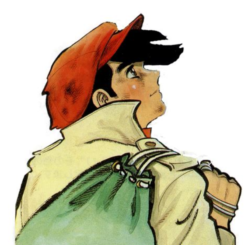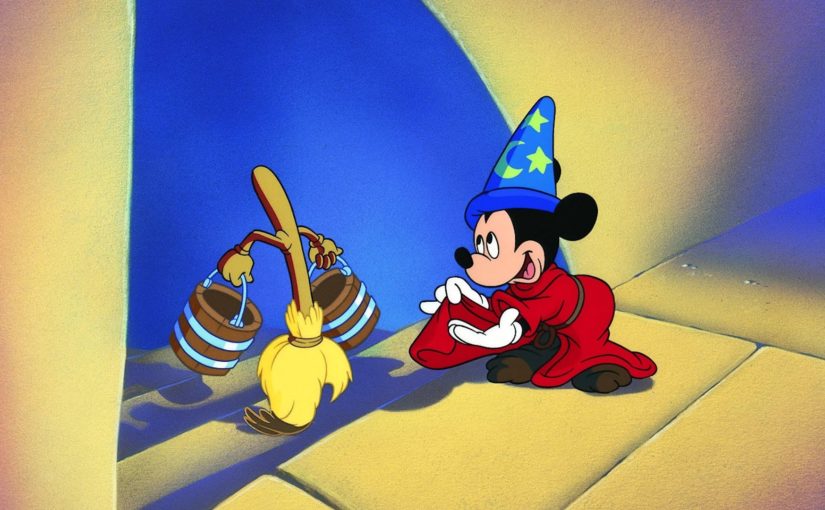A fan’s subjective perspective on the early stages and evolution of traditional animation. Mostly an extensive list of cartoons and films that stand out in my eyes, all in neat chronological/geographical order. You’re welcome. Today: a special post about Fantasia, Disney’s attempt at artistic animation.
Fantasia was conceived in 1936 to boost Mickey Mouse’s popularity by casting him in The Sorcerer’s Apprentice, a kind of deluxe cartoon. Disney had been putting animation to classical music for years in the Silly Symphonies, but wanted to do it in a more abstract way, without gags and slapstick. In 1937 Disney and conductor Leopold Stokowski agreed to work together. As always, Walt Disney got carried away by his ambition. Production costs kept rising and the cartoon became a film. Fantasia was postponed until after Pinocchio and Bambi and came out in November 1940. It was pure visual goodness and Disney tread new ground for animation.
Instrumental music is a very abstract art form, and it makes sense in this movie to support it with abstract animation. For this reason, Disney hired Oscar Fischinger, who I talked about here, to work on this segment, but it didn’t work out. So instead of little triangles and designs we have uh… some other stuff.

Nutcracker Suite, part one, part two, part three

Art Babbit attempted to match animation to every detail of the music. He worked with a musical score pinned to his desk and used footage of real dancers to guide the animation.

Made in 1938. At this moment, Mickey was given pupils for the first time. Someone who actually knows anything about all this stuff could tell you about the bold use of color and lighting.
Fire, lava and other hot stuff. After that: watery stuff and floaty things. And dinosaurs! Who, as all of you should know by now, actually had feathers.

The Pastoral Symphony
Part one: Centaurs, pegasi and other colorful, magical things. Part two: nudity and racism. Part three and four: nudity and racism in HD. Part five: chibi’s bathing in pools of Technicolor

Along with The Sorcerer’s Apprentice, the most traditionally animated scene. The animator resisted his assignment, as he knew little about ballet. He was then given season tickets to the ballet and was forced to learn more about it. Walt Disney didn’t mess around. Another wiki fun fact: in order to draw the hippo ballerina, they brought in an overweight women and recorded her, so the animators could study every quiver of her flesh and notice which parts of her body were subjected to the greatest stress and strain. So, as I understand, many parts of this film were censored, but they did manage to use a fat woman to animate a hippo.
One of my favorite parts. Chernabog and scary ghosts. It’s hellish but screen shot heaven. I took lots of ‘em but couldn’t choose, so here’s all of them.





At 145 seconds, the longest uninterrupted animation in movie history(?). Animating slow movements was one of the most difficult tasks for animators. Art by Kay Nielsen.

Fantasia was one of Disney’s greatest artistic achievements and critics viewed it as a masterpiece. Sadly, it lost even more money than Pinocchio. I guess some people don’t recognize art when they see it.

Previous posts:
Early stages of animation: 1920-1937 – The Rise of Cartoons
Disney’s Snow White and the Seven Dwarves – Golden Age of Animation
Disney’s Pinocchio -Golden Age of Animation
Next up: Dumbo & Bambi !

